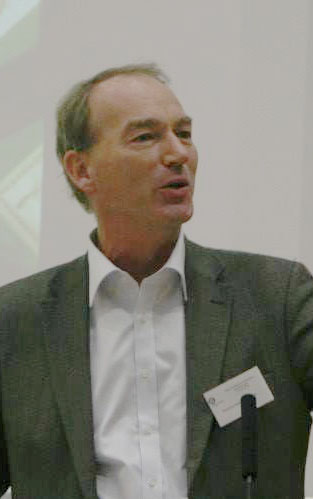Letter from the president
Dear EASA members,
‘It was the best of times, it was the worst of times,’ reads the famous opening line of Charles Dickens’ A Tale of Two Cities. And he continues, ‘it was the age of wisdom, it was the age of foolishness, it was the epoch of incredulity, it was the season of Light, it was the season of Darkness, it was the spring of hope, it was the winter of despair, we had everything before us, we had nothing before us …’
It almost feels as if Dickens were speaking of the state of the world in 2015. We live in a time of fast global changes reacted to through an infinite variety of local responses and strategies. Some academics defend universalist ideas of progress, arguing that the humanity is on the whole doing far better than at any time before in history. Others are concerned with new forms of exclusion, environmental devastation and climate change, social injustices, ruthless marketisation and hegemonic knowledge regimes that leave little space for diversity, complexity, doubt and slow thinking. Characteristically, some of the concepts that have predominated in the theoretical inventory of anthropology in the last few years are the Anthropocene, neoliberalism and the precariat. The success of anthropological research and theory in the 20th century depended on the ability of its practitioners to find the balance between universalist ambitions and local particularities, between the timeless and the topical, the slow and the urgent. We should take inspiration from them and retain the ambition to speak simultaneously about what it entails to be human and about the world. Yet, in the present century, we are faced with a broad range of new challenges, from the popularity of reductionist accounts of the human condition to the need to carry out fieldwork, comparison and theory in new ways in a continuous, interconnected world.
With these reflections as a backdrop, it is my great pleasure to announce that the theme of the next EASA conference will be ‘Anthropological legacies and human futures’. It takes place at Milano-Bicocca University in beautiful Milan from 20 to 23 July 2016, and I am looking forward to seeing you all there! The call for papers and panels is being published these days, and we believe that the conference will show in no uncertain way why anthropological perspectives are more important than ever before in this ‘age of wisdom, age of foolishness’.
Indeed, the academic world is directly affected by some of the broad, global tendencies I sketched above. A couple of the key terms – precarity and neoliberalism – may easily be applied to university life these days. The kind of knowledge and theory produced by anthropologists, by virtue of not being directly instrumentally useful, is under threat in different ways across our continent and beyond. The discontinuation of the anthropology BA in Hungary may the most dramatic recent development, along with the announced closure of ‘A’ level anthropology in the UK; but across the continent, anthropology departments and institutes are struggling with funding, positions, student numbers and recognition in society. At the same time, funding for anthropological research has been severely reduced in the US, and the Japanese state recently demanded the closure of humanities and social science departments in 26 of 60 state universities. Last year, as if in a forewarning, Japan’s president Shinzo Abe held a speech at OECD where he stated: ‘Rather than deepening academic research that is highly theoretical, we will conduct more practical vocational education that better anticipates the needs of society.’ The onus is now on us to prove that the ‘highly theoretical’ knowledge produced by social and cultural anthropologists is ultimately more ‘useful’ than narrowly conceived instrumental knowledge with a specific aim. Fredrik Barth once said, at a meeting in the Norwegian Research Council, ‘The main difference between basic and applied research is that basic research is so much more applicable.’ While this statement admittedly expresses an underestimation of the potentials and significance of applied research, the main point is that research driven by curiosity casts a wider net and may lead to greater rewards than narrowly conceived problem-solving.
It may well be the case that the Zeitgeist is not currently on the side of an academic endeavour which offers no quick fixes or quantifiable answers. It is certainly the case that anthropology has recently lost some ground in many European countries. Our response as a professional association consists in addressing the challenges directly, and the theme for the symposium we organised in connection with the AGM (annual general meeting) in Prague on 14–15 October was precisely ‘Making anthropology matter’ (see separate item in this Newsletter). At the symposium, speakers from many European countries were discussing the situation of the discipline in their countries. What in effect emerged was a mini-festival of ideas, a mutual learning exercise concerning the state of our discipline and the ways in which we can improve its standing inside and outside the academy. It was a pleasure to see so many EASA members in Prague (we had 55 participants), and for those of you who were not able to make it, will soon be able to read about the outcomes at the EASA website and elsewhere.
Warm regards from chilly Oslo,
Thomas Hylland Eriksen
President







